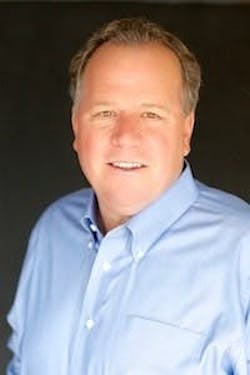About the author: Bill Dodd is Napa County (Calif.) supervisor, a candidate for the California State Assembly and a former president of the Water Quality Assn. and Pacific Water Quality Assn. Dodd can be reached at [email protected] or 707.287.7249. Kate Cline is managing editor of Water Quality Products. Cline can be reached at [email protected] or 847.391.1007.
Legislation and regulations have a large impact on the water quality industry — but the industry also has the power to impact the legislation that affects it. Water Quality Products Managing Editor Kate Cline recently spoke with Bill Dodd, California State Assembly candidate and member of the water industry, about the importance of educating legislators.
Kate Cline: What are the top legislative/regulatory issues currently facing the water quality industry in California?
Bill Dodd: As has been the case for many years, the water quality industry has to be prepared for any business-unfriendly legislation. Getting members organized and prepared to speak with their legislators on an annual basis is an important strategy in legislative preparedness.
Cline: How have softener bans affected the industry in California? Do you expect more regulations on softeners in the future?
Dodd: Softener bans have had a significant impact on softener sales over the years. Given past legislation, I would expect more regulations moving through the legislature in the coming years.
Cline: What new legislation do you predict for 2014?
Dodd: I don’t have any idea what the current legislature has in store for 2014. That is the problem — nobody does, yet the industry needs to be prepared for legislation when it occurs. The Pacific Water Quality Assn./Water Quality Assn. have an excellent lobbyist who is constantly on top of legislative activities.
Cline: How can dealers, manufacturers and other industry members influence the legislation that affects water treatment?
Dodd: Once again, it is important to be prepared and working annually to educate legislators, whether or not legislation has been drafted. Now that term limits [for the California State Assembly] have been extended from six to 12 years, it is more important to get moderate, business-friendly candidates elected.
Cline: Why is it important for industry members to advocate for their industry?
Dodd: Without members advocating for their industry, there is a void of information, which can lead to legislation that could significantly undermine the water quality industry.
Cline: What are some tip for initiating contact with local, state or national representatives?
Dodd: Having served on the Napa County Board of Supervisors for four terms, I have found that the state legislators are responsive to their constituents. Make sure when you call for an appointment that you let the staff member know you are a registered voter in his or her district and own a business, and explain how many employees and customers you have.
Water Quality Goes to Washington
On Oct. 1 and 2, Water Quality Assn. (WQA) staff and members traveled to Washington, D.C., to explain the association’s positions, answer questions and offer facts and figures on Capitol Hill.
Highlights included:
- Sen. John McCain’s office (R-AZ). McCain will be taking a more central role in water issues in Arizona, and his staff asked to be briefed on the committee on salinity.
- Sen. Dianne Feinstein’s office (D-CA). Staff expressed particular interest in WQA activities and data, and want to work together on point-of-use issues and providing water to underserved communities.
- Rep. John Shimkus (R-IL). As chairman of the Subcommittee on Environment and Economy of the Energy and Commerce Committee, Shimkus is committed to helping particularly with U.S. Environmental Protection Agency issues.
—David Loveday, WQA Director of Government Affairs & Communications
Download: Here
